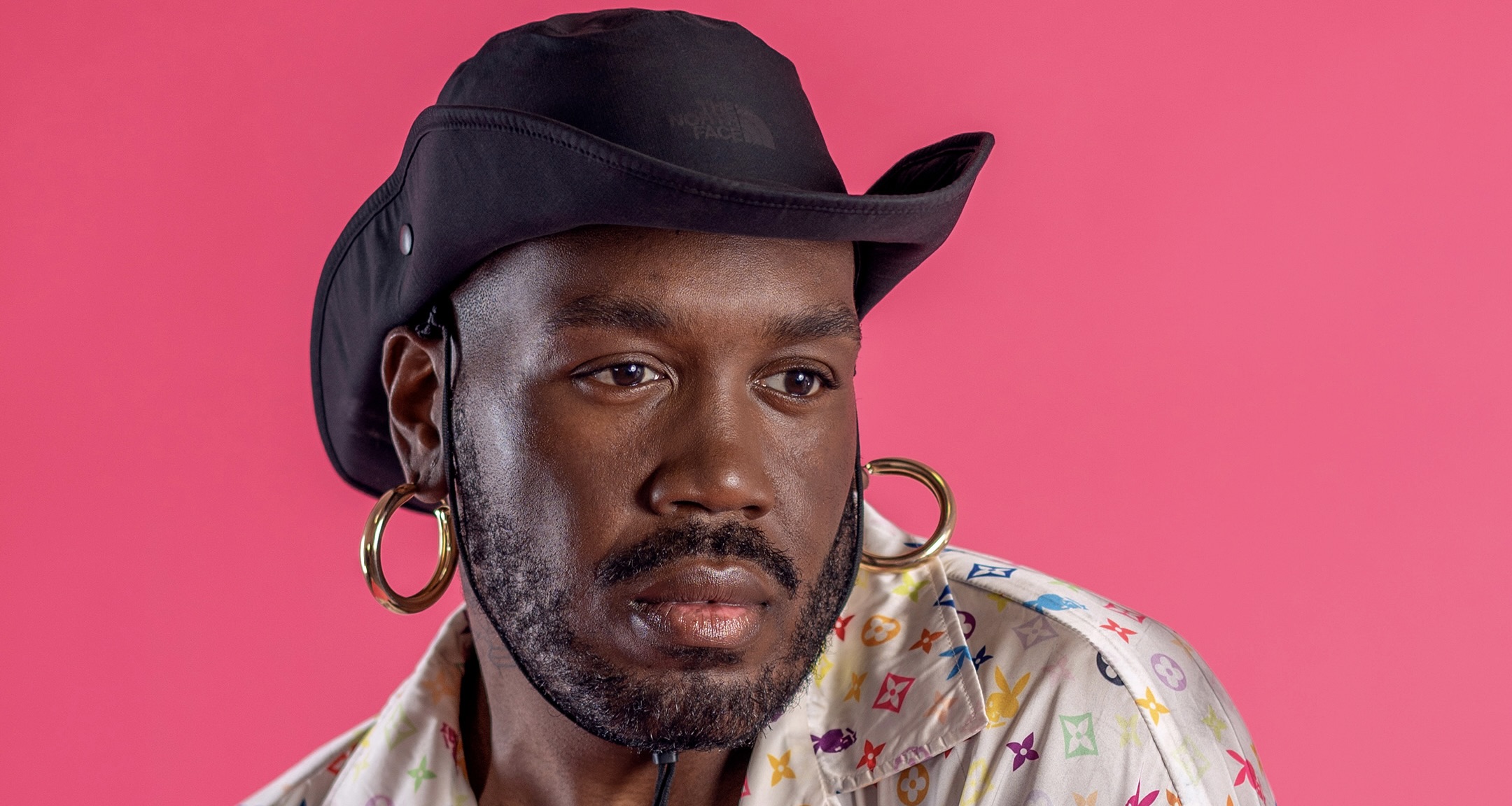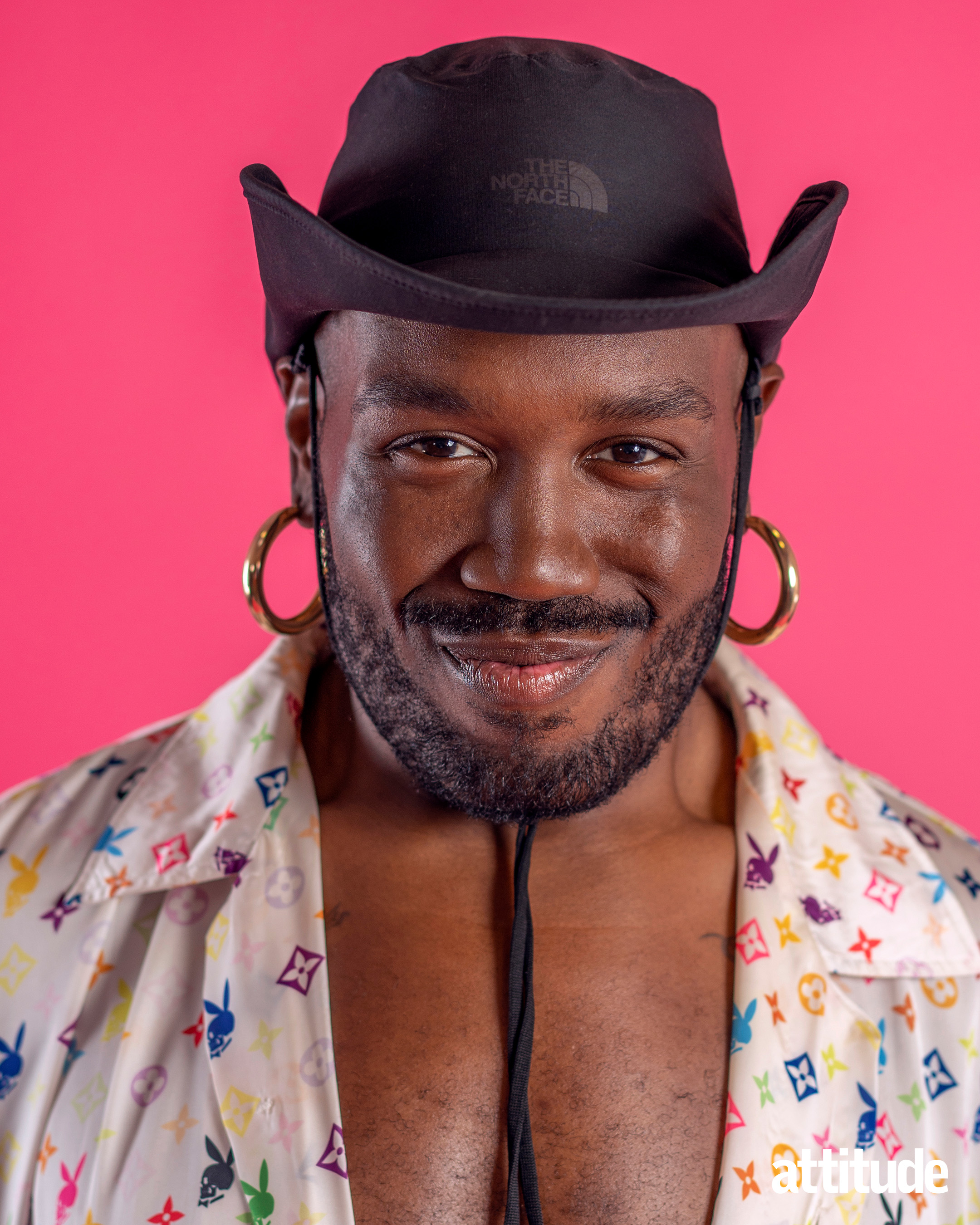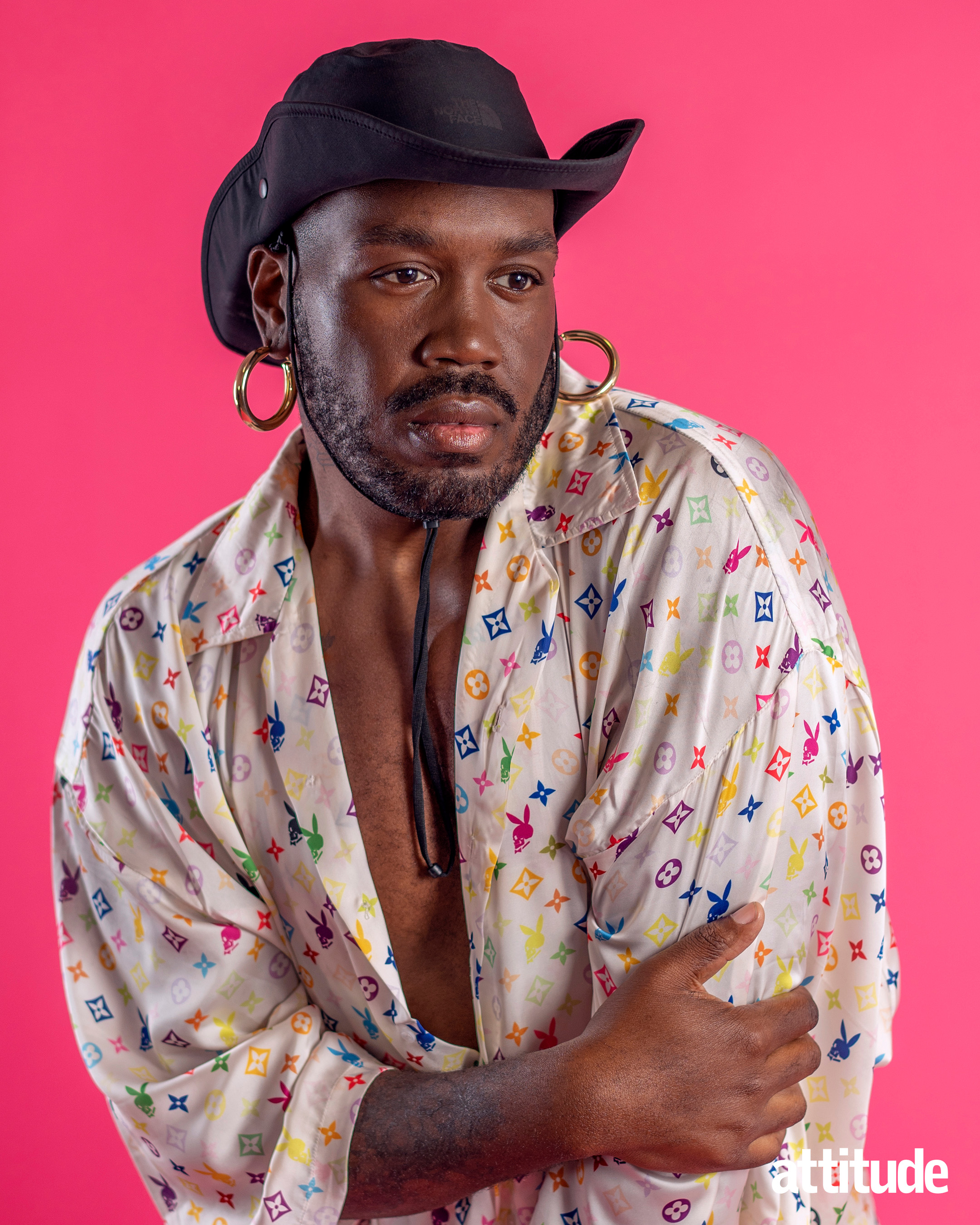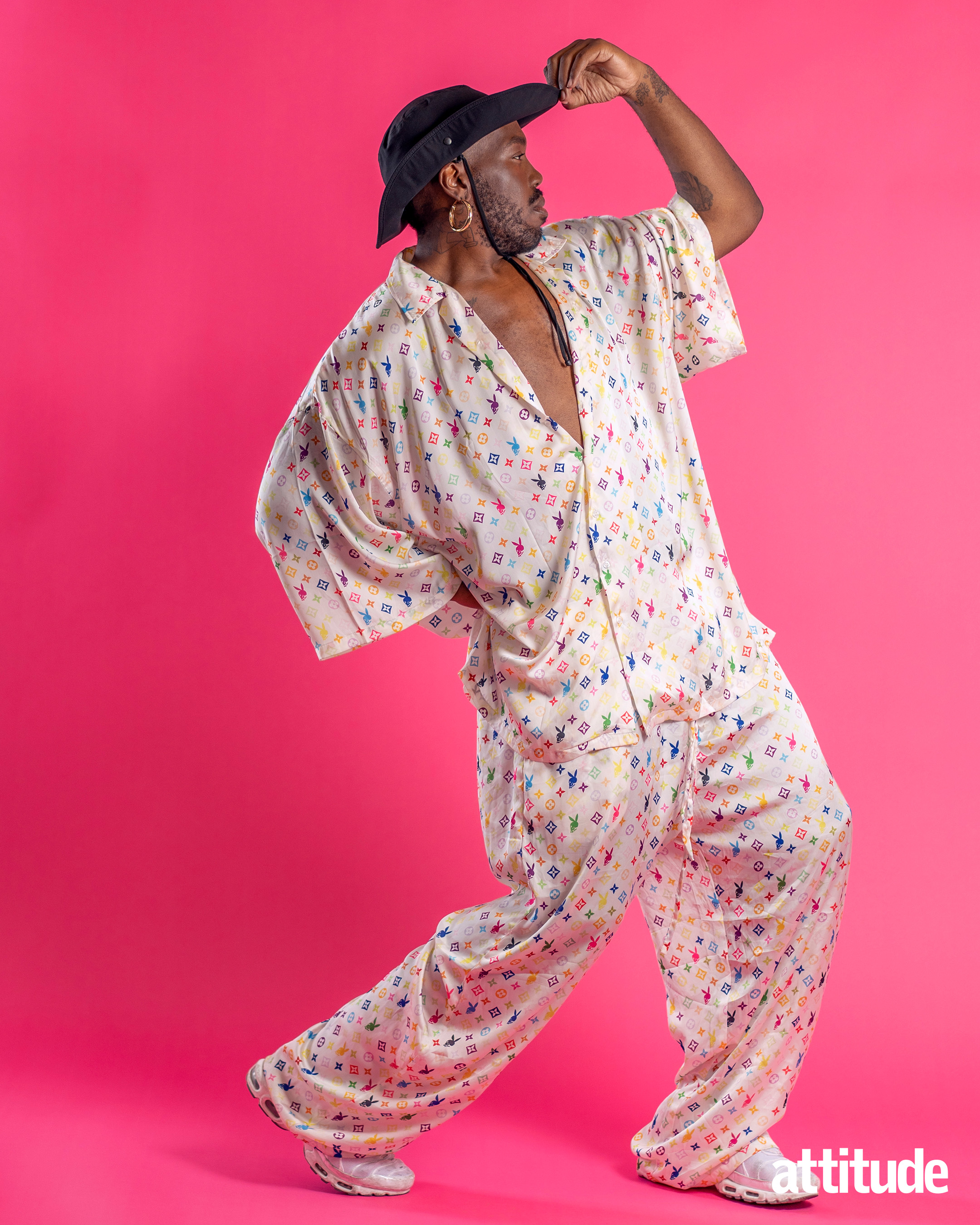Drag Race France judge Kiddy Smile is pushing for equality through music
The DJ is one of the Pride Icons being honoured at the Attitude Pride Awards 2022, in association with Magnum.

Words: Lee Dalloway; Photography: Markus Bidaux
“I’ve never won an award before… I’m so happy!” beams Kiddy Smile, who makes our hearts melt when told he’s this year’s recipient of an Attitude Pride Icon Award, supported by Magnum. A talented, outspoken, Black, queer pioneer and unapologetic advocate for visibility and equality, he’s paved the way for other artists that have followed.
Born to immigrant parents on a working-class estate in Paris, Kiddy’s formative years coincided with a time when rights and equalities were more fragile and less widespread than they are today. Opportunities were even fewer.
“It was very hard for me growing up to understand that you could transform your passion into a career,” Kiddy explains. “I grew up in the projects and there were not a lot of options. You could either sell drugs or be a soccer player. You had to figure out being queer and you had to hide.”
Now 39, Kiddy can see that the positives and negatives of his upbringing, the obstacles — and the strength it took to overcome them — went on to shape his growth and art. “My dad was very abusive. I was always happy to go outside because I couldn’t talk back or fight against my father,” he recalls.
“I wouldn’t take shit from other people outside. Even though it was obvious I was queer, I showed them I wouldn’t be pushed around.”
It was his passion for dancing and his love of Grace Jones that inspired and drove him. After school, taking dance classes paved the way for his discovery of the burgeoning ‘Vogue’ Ballroom scene in Paris, a place where LGBTQ+ performers of colour showcase their talents in underground competitions.
The freedom and creative expression led to Kiddy not just finding the community he longed for, but also a career. While his peers worked for the minimum wage, a teenage Kiddy scored his first professional job dancing for George Michael. But just as he was set to audition for Madonna, an injury forced him to revise his goals.

“I had an accident and was in hospital for a year,” he recalls. “When I recovered, I wasn’t dancing to the level I used to. I had another audition for Madonna, but they decided not to keep me. I was told, ‘It’s nothing do with your level of dancing, but your character is so outstanding and you’re so tall and big, we don’t really know what to do with you. You don’t blend in with the crowd.’ I thought, ‘I don’t fit in with this industry; I have to find a way to tell my story with my art. To do something for myself.’”
It was here where Kiddy’s first love collided with music and fashion. He made his own music and divided time between knob-twiddling, Ballroom competitions, and fashion styling. A chance encounter at a Paris fashion show would change everything.
“I was sitting behind Beth Ditto at a fashion show and she kept turning around to talk to me. She invited me to an after-party where she was performing, at a club in which Grace Jones had cancelled — I mean, it was perfect. We ended up going on stage to sing ‘Pull Up to the Bumper’ with James Murphy from LCD Soundsystem, Hot Chip, and The xx, it was just insane. A guy from a French record label gave me his card and that’s how I got into music.”
His confidence blossomed, so much so that Kiddy took the bold step of coming out to his mother at 24.
“I was very comfortable in my queer life in Paris and wasn’t going home to my parents much,” he recalls. “I just wasn’t comfortable talking about it with my family, but I had to tell her. It would either bring us closer or end our relationship. Luckily, she said, ‘You’re my son, I love you. I’m never going to throw you away’.”

Coming out stories are very important. It’s still a luxury and not everyone gets to do it. It doesn’t matter what age it happens, every situation is different, it’s just how long it takes you to present yourself to the world. Some people feel pressure like they have to do it, like it’s a race. But it’s not. When you’re ready, you’re ready and if you’re not that’s OK.”
Kiddy is humble, kind, and softly spoken in person, but loud, honest, and defiant in his art and activism. His debut ‘Let a Bitch Know’ was a trailblazing melting pot of cutting-edge underground sounds and colourful Ballroom personalities draped against the gritty backdrop of his childhood estate.
It soon led to a critically acclaimed album that commingled raw personal stories, topical politics, and lyrics that didn’t shy away from his sexuality, topped off with him joyously showcasing some iconic gender-fluid looks. “I think one of the best things of our community is being able to play with gender norms.”
His newfound notoriety saw him invited to DJ at Elysée Palace by President Macron in 2018, taking with him his eye-catching Ballroom squad, and zoning in on France’s huge immigration law debate at the time by wearing a T-shirt emblazoned with ‘Black son of a migrant and faggot’, en Français.
The gig ruffled feathers of those on the right and left. “My mother told me I had to do it, as there’s no representation of Black gay men having access to these places. This is why I went there: “

Kiddy is now veering into the mainstream as one of the judges on Drag Race France. Sadly, he still experiences prejudice in both his life and work.
“I don’t think it ever stops. Racism is everywhere and it’s constant. It’s really hard to not suffer from some oppressions, especially when you can’t hide them. Little things on top of others, microagressions, can be very tiring. Me boarding a plane and people checking my ticket twice or three times. Asking me if this is my seat. It gets to a point where you can become angry.”
Although undeniably ground-breaking, the responsibilities that come with that can be difficult and he’s uncomfortable with the term ‘role model’.
“I’m only a human being and I make mistakes,” he says. “You have to see where someone’s heart is at and I’m just trying to be my best. There’s a lot of things I don’t want to do, questions I don’t want to answer. But people before me have done the work of pushing the boundaries to be able to do what I can. I need to push it a little further for the younger generation. I advise them to be the person you wish you could have looked up to when you were younger.”
The Attitude September/October issue is available to download and order in print now and will be on newsstands from Thursday 4 August.

